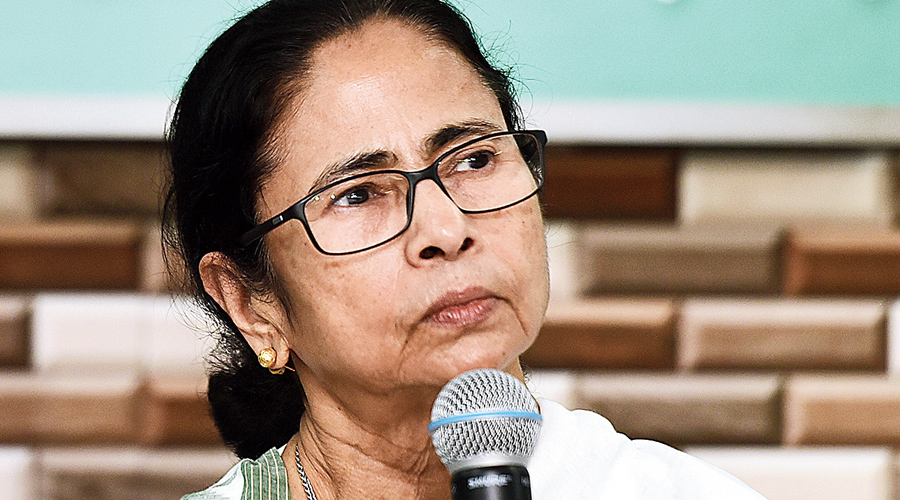The Indian Jute Mills Association (IJMA) has sought the support of chief minister Mamata Banerjee to safeguard the interests of the industry and farmers amid fears that the Centre will allow plastic bags to pack foodgrains and sugar for the kharif season starting next month.
The Jute Packaging Material Act (JPMA) mandates packing all foodgrains and sugar produced in the country in jute bags.
However, the inability of jute mills to meet the demand for jute bags because of a cyclone and the pandemic had given the Union textile ministry scope to allow the use of plastic bags in the previous rabi season.
But this time, the jute industry is excepting a bumper crop, which has prompted the mill owners to write to the chief minister.
Raghavendra Gupta, chairman of the IJMA, said in a letter to Mamata on Friday: “Kindly intervene so that Bengal’s jute mills receive 100 per cent jute bag supply orders in 2021-22 for packing food grain and sugar and JPMA 1987 is continued in its original shape.”
The industry suspects that the Centre, at the behest of the synthetic lobby, intends to scrap the JPMA.
Technically, the fate of the 60-odd jute mills in Bengal, which employ 3 lakh people directly and 40 lakh people indirectly, including jute farmers, depends on the JPMA.
There was a drop in the production of jute bags in the previous year because of Cyclone Amphan which destroyed about 60,000 hectares of jute farmland and the coronavirus-induced lockdown forced the closure of 17 mills. This led to a shortfall in supply of jute bags. Hence, the JPMA was diluted to allow plastic bags.
However, the IJMA has contended that with the raw jute crop expected to be voluminous this year, the mills would be able to meet the demand for jute bags and no further dilution of the JPMA would be necessary.
“Around 17 lakh tonnes of raw jute are expected to be produced this year. On average, the entire demand for bags can be fulfilled by 15 lakh tonnes of raw jute. Hence, we can meet the demand (for bags),” a jute mill owner said.
Sources in the jute commissioner’s office said there had been a shortfall of 7.7 lakh bales of jute bags in the rabi season last November. “For the kharif season, the demand for jute bags had been placed at 22 lakh bales. Jute mill owners had earlier said that they will not be able to produce more than 15 lakh bales of jute bags. In order to meet the shortfall, plastic bags have to be allowed,” a source said.
However, with the possibility of a bumper crop, mill owners believe that the shortfall of 7 lakh bales will also be recovered.
Amphan and Covid-19 were unprecedented and the industry can’t be forced to suffer for those, which is why they sought the CM’s support, Gupta told this paper.
The standing advisory committee on jute meets on June 30 and it is represented by the state government. According to the IJMA, the state’s representatives must speak against the use of plastic bags.
Sources in the Trinamul Congress sniffed a larger conspiracy behind the intention to further dilute the JPMA. Multiple Trinamul sources pointed out that the BJP had lost in more than 105 of the 114 Assembly segments in the state’s jute belt.
“The BJP has fallen flat on its face in the North and South 24-Parganas, Howrah and Hooghly. If the use of plastic is encouraged to pack food grains and sugar, it will be a doom for the jute industry and lead to massive law and order disruption in districts where majority of jute mills are located,” a Trinamul leader said.











